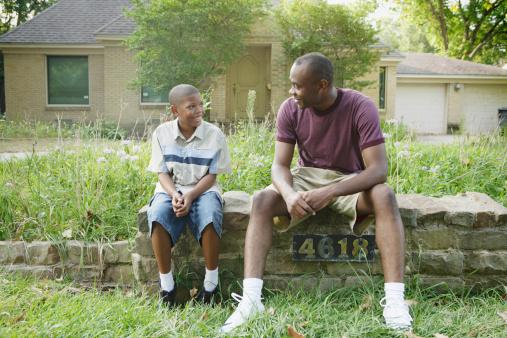
Most parents don’t want to think of their children engaging in sex. Single mom Aaliyah Noble stresses that it’s crucial that they keep an open door policy. That’s not to say they need to divulge all the details, but shying away from the issue can cause serious ramifications. Parents should be available for advice, not just on relationship issues, but also for the detailed version of the birds and the bees.
Teens have a direct conduit to all kinds of information via the Internet. That doesn’t mean they can always understand what they’re seeing or reading. Giving them their first sex talk about the details of contraception, sexual diseases, and even abstinence should be a parents’ priority. Many times when a teen is checking for facts online it means they’re already sexually active or on the verge. Kevin Jennings, an educational specialist, urges parents not to depend on a school to have this talk. Many are giving incorrect information, deleting the classes from the curriculum, and only guiding teens towards abstinence.
Talking of contraception, it’s vital to a male and female’s health. Using barrier methods can be effective in preventing pregnancy and sexually transmitted diseases. Even if your child decides they want to have an implantation variety, stress that they still use a condom. Spending the few dollars to keep themselves safe is worth it. Local health departments, and even some school programs, provide free condoms and birth control options.
Give your child the chance to learn what it would be like if they were a teen mom or dad. If you have a relative or friend who is willing, have your teen babysit the child for a day. Make them responsible for figuring out how to clean the child, prepare their meals, wash their clothes, work a job, and take care of financial expenses (formula, diapers, daycare, etc.). It’s better to get the walk through, before it becomes reality.
Stress the importance of taking care of their health. Sexually transmitted diseases can cause death, prolonged sickness, and derail any future relationships. They can also be painful and expensive to treat. Being confident about their body, and valuing themselves, can help them want to take care of it in every possible way.
Relate the way a sexual relationship should be—filled with emotion and between two people who care for each other. Not because of peer pressure, forced in any way, or done casually. Best-selling author Dr. John Gray advises to remind girls that any form of sexual contact, like oral sex, is sex. Every act comes with emotional and physical ramifications that can severely complicate their life for the better or worse.
Whether your child is already sexually active or not, ask them where they stand. Make it a point to talk regularly, and don’t judge. Chances are they haven’t thought through the scenario. If you want to break the ice, or learn why you should be involved, psychotherapist Jonathan Nadlman suggests reading Sex and Sensibility by Deborah Roffman. Sharing the information and having you in their corner means your child has an ally no matter what comes in the future.






